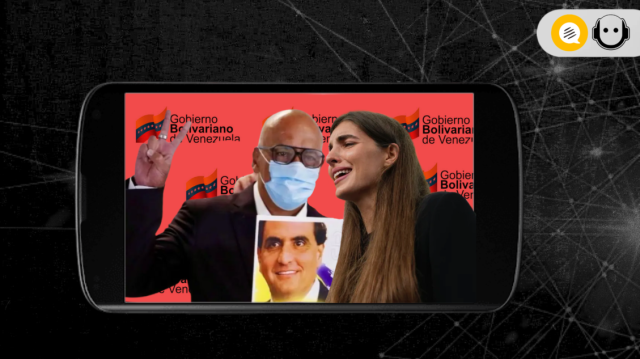
We’re happy to announce a media partnership with Probox to feature some of the findings of its PoliTwitter newsletter – with our twist. PoliTwitter monitors organic and inorganic content on social media and analyzes the dynamics of our social media ecosystem.
By Caracas Chronicles
Oct 22, 2021
We have long been wondering if Twitterzuela’s conversations are representative of what’s really happening on the ground in Venezuela. Looking for tools to understand the dynamics of our social media ecosystem, we found Probox – an all-female team led by Maria Virginia Marín – and their weekly newsletter: PoliTwitter. Every week, we’ll publish their conclusions, highlight the most organic and inorganic conversations of the moment, and we’ll try to figure out what they mean for our scorched political landscape. Marín has been monitoring social media, especially Twitter, since 2020. “Traditional media outlets have been censored and social media has become a fundamental channel for the distribution of information for Venezuelans. But it’s important to keep in mind that not everything that’s viral and massive is real.”
The last two weeks, for example, Alex Saab was a trending topic for four days with the hashtags #AlexNosUnióMás, #AlexPresoPolítico, and #AlexEsDiálogo, all promoted by high-ranking chavista political actors. However, they also show more than 55% of inorganic promotion. What’s inorganic promotion? When a hashtag is used by potentially automated or fake accounts.
This week, the volume in social media has gone up and Saab has been involved in almost every relevant conversation on Twitter. “Hashtags related to Saab are incredibly repetitive. We see trending hashtags about him every single day,” says Marín.
Eight keys to understanding the conversation about Alex Saab on Twitter
- From January to October 2021, there have been 134 trends about Alex Saab and 3,251,712 tweets.
- September was the month when he was mentioned the most on Twitter, so far. The context? The announcement of his extradition and the government’s statement on including him in the México talks.
- However, during October, the conversations increased again: trends in defense of “the Venezuelan diplomat.”
- During September, 34 hashtags about him made it to the trending topics, all of them driven by radical chavista accounts.
- About 53.75% of the accounts that have used hashtags in favor of Saab are potentially automated or fake accounts.
- The day after Saab’s extradition, the Communications Ministry used the hashtag #LaVerdadSiempreTriunfa (#TheTruthAlwaysPrevails). It was the first time the ministry got involved in this conversation.
- Hashtags used to promote Alex Saab as a hero, Venezuelan diplomat or political prisoner wrongly accused and kidnapped by the U.S. government have been promoted in some countries besides Venezuela:
- Colombia (two hashtags)
- Ghana (three hashtags)
- Nigeria (three hashtags)
- The government has used six different narratives to promote Alex Saab on social media:
- Victimization: with 105 trending hashtags that lead to 78.71% of the total tweets and promoting a TV show on YouTube.
- Against authorities in Cape Verde: with 13 hashtags. This narrative has the biggest inorganic interaction of all six narratives.
- México negotiation: with 10 trending hashtags.
- Disinformation: A good example is the hashtag #VictoriaProcesalEEUU (#LegalVictoryUSA), with messages about a court in the U.S. that recognized Saab as a Venezuelan diplomat. 15.43% of those messages come from potentially automated accounts.
- Propaganda: about alleged business made by Saab that will help in the humanitarian emergency.
- Attacks against journalists: mainly against Roberto Deniz through the hashtag #DenizVendePatria and the investigative outlet Armando.Info, which have investigated Saab’s corruption networks in depth.
- 27.97% of the violent online attacks against journalists come from potentially automated accounts.
- 73.63% of the accounts that blame journalists for Saab’s detention usually interact with trends started by El Mazo Dando.
…
Read More: Caracas Chronicles – Alex Saab, Chavismo’s Twitter Martyr
…

